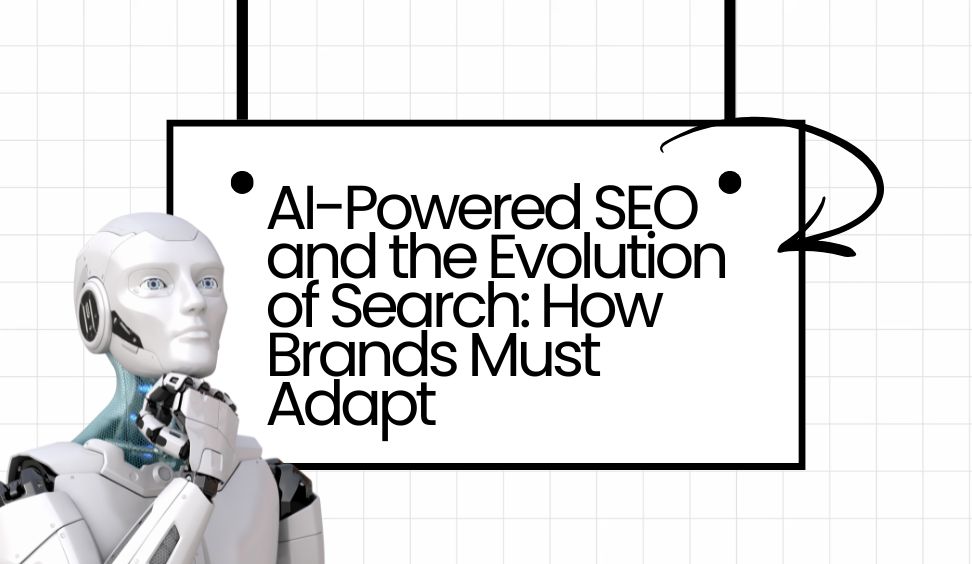
Search has always been evolving. From typing a few keywords into Google to today’s more advanced queries, consumers expect answers fast, relevant, and personalized. But now, a new player is reshaping the SEO landscape: Generative AI and conversational search. For African brands looking to grow online, understanding this shift isn’t optional — it’s critical.
In this post, we’ll explore how AI is changing search, why traditional SEO strategies are no longer enough, and how brands in Africa can optimize for the future of search.
The Rise of AI-Powered Search
Over the past few years, tools like ChatGPT, Bing AI, and Google Gemini have moved beyond just chatting. They’re now delivering answers that were once the sole domain of Google’s search results pages (SERPs).
Instead of scrolling through 10 links, users can now ask:
“What are the best mobile money apps in Ghana?”
And receive a direct, detailed answer generated by AI.
For example: A small business owner in Accra can now ask:
“How do I increase Instagram engagement for my clothing brand?”
Within seconds, AI provides step-by-step strategies — from posting frequency to content ideas — without clicking a single traditional search result.
This is conversational search in action. Users ask questions in natural language, expecting human-like, actionable answers. And here’s the kicker: most of these answers are powered by generative AI.
Why Traditional SEO Alone Won’t Cut It
Traditional SEO focused on keywords, backlinks, and ranking on Google’s first page. While these tactics still matter, AI-generated search results are changing the game.
- From Keywords to Conversations
People no longer type “best banks Ghana” — they ask:
“Which bank offers the fastest mobile transfers for small businesses in Ghana?”
Your old SEO strategy may not match these conversational queries. If your content doesn’t answer these questions directly, AI might bypass your page entirely.
- Featured Snippets Are Becoming AI Answers
Google has been showing featured snippets for years, but now AI integrates multiple sources and generates a single comprehensive answer. Brands that don’t optimize for these snippets risk losing visibility, even if they rank #1 traditionally. - Local Relevance Is More Critical
In Africa, context matters. A generic SEO tactic won’t help if your content doesn’t consider local cities, languages, or cultural nuances. AI often prioritizes highly relevant, authoritative, and localized content when generating answers.
How African Brands Can Optimize for Conversational Search
Optimizing for AI-driven search is not about abandoning SEO — it’s about evolving it. Here’s how African brands can stay ahead:
1. Answer Questions Directly
Create content that answers real questions your audience is asking. Use tools like AnswerThePublic, ChatGPT, or Google’s People Also Ask to discover queries.
For example, a Nigerian fintech brand could target:
“How can small businesses in Lagos save on transaction fees?”
Instead of just ranking for “best payment apps in Nigeria,” your content directly solves a specific problem.
2. Use Natural Language
Write your content in the way people speak naturally. AI understands conversational language better than keyword-stuffed text.
Instead of:
“Top mobile money solutions Ghana”
Try:
“Which mobile money solution is fastest and most reliable for small businesses in Ghana?”
3. Leverage Long-Form, Structured Content
AI favors detailed, structured content. Include:
- Clear headings (H1, H2, H3)
- Step-by-step guides
- Lists and tables
- Local examples and case studies
For instance, a South African e-commerce site could create:
H2: How to set up an online store in South Africa
Step 1: Choose a platform like Shopify or WooCommerce
Step 2: Optimize for local payment gateways like PayFast
Structured, easy-to-read content feeds AI with the signals it needs to generate answers.
4. Build Authority and Credibility
AI models prioritize trusted sources. Brands should:
- Link to reputable local and international sources
- Showcase customer testimonials and case studies
- Keep content factual and updated
For example, an agritech startup in Kenya might cite Kenya National Bureau of Statistics (KNBS) when writing about crop yields or farming trends.
5. Focus on Voice Search Optimization
Conversational AI and voice assistants (like Google Assistant or Alexa) are gaining traction across Africa. Optimizing content for voice queries ensures your brand gets included in AI-generated answers.
Example voice query:
“Hey Google, which app can I use to track my sales in Nigeria?”
Your content should include natural, complete answers that can be read aloud by AI.
6. Incorporate Local Languages Where Relevant
Africa is a multilingual continent. While English dominates, adding Swahili, Yoruba, Twi, Zulu, or French content can increase AI visibility and reach niche audiences.
Real African Examples
- Flutterwave: Optimized content around “how African businesses can accept online payments.” Their blog content answers direct questions and is structured for AI to generate accurate responses, helping them appear in conversational search.
- MTN Ghana: Uses clear, structured content to answer queries about mobile money services. AI-generated answers often pull directly from their FAQs and tutorials.
- Jumia Nigeria: Long-form guides on “how to buy on Jumia” are structured with headings, steps, and local context — perfect for AI answers.
These brands show that conversational SEO isn’t just theory — it works in real African markets.
The Bottom Line
AI-powered search isn’t coming — it’s already here. Traditional SEO is still important, but African brands that fail to adapt risk losing visibility in AI-generated answers.
To stay competitive:
- Answer questions your audience is actually asking
- Write in natural, conversational language
- Structure content for AI comprehension
- Build authority with credible sources and testimonials
- Optimize for local context, voice search, and languages
The brands that adapt first will capture AI-driven traffic, reach audiences faster, and convert them more effectively.
If you’re serious about growth in Africa’s digital landscape, start optimizing for conversational search today — because tomorrow, AI might answer for you, whether your brand is ready or not.